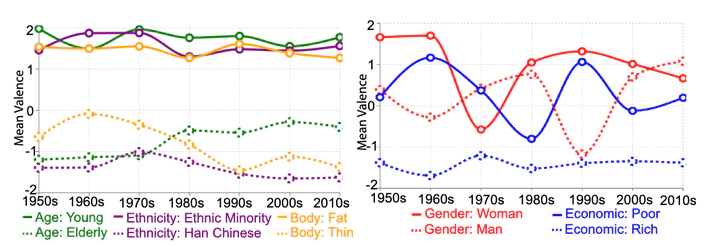
Abstract
Language encodes societal beliefs about social groups through word patterns. While computational methods like word embeddings enable quantitative analysis of these patterns, studies have primarily examined gradual shifts in Western contexts. We present the first large-scale computational analysis of Chinese state-controlled media (1950-2019) to examine how revolutionary social transformations are reflected in official linguistic representations of social groups. Using diachronic word embeddings at multiple temporal resolutions, we find that Chinese representations differ significantly from Western counterparts, particularly regarding economic status, ethnicity, and gender. These representations show distinct evolutionary dynamics: while stereotypes of ethnicity, age, and body type remain remarkably stable across political upheavals, representations of gender and economic classes undergo dramatic shifts tracking historical transformations. This work advances our understanding of how officially sanctioned discourse encodes social structure through language while highlighting the importance of non-Western perspectives in computational social science.